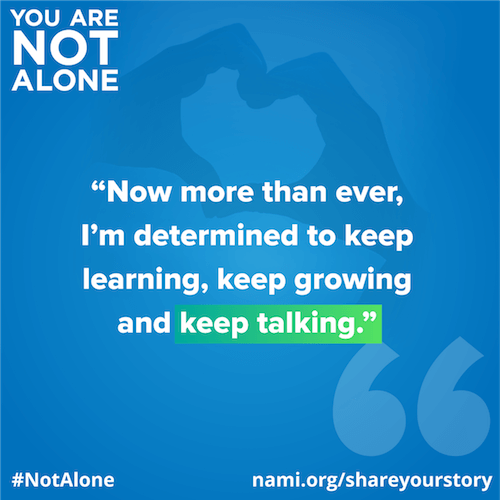
In honor of May being Mental Health Month, in a time when fostering a positive mental health culture is more important than ever, I want to share 10 reasons why it’s important for me to keep talking about my own mental health experiences.
- When I was in college, I was told over and over again to take care of myself, but I never really felt like I was taught how.
- I’ve had a hard time finding therapists and psychiatrists who click with me, which until recently has hindered my motivation to keep trying.
- I was convinced I’d never make it into medical school unless I hid my mental health struggles. I’ve known so many friends and colleagues over the years who have felt that they couldn’t be open about their mental health concerns out of fear of being judged, labeled and ostracized by their academic/professional communities.
- I grew up as a first generation Asian American, in a culture in which mental illness is traditionally a taboo topic, and I thought for so long that struggling with mental illness made me a disappointment and an embarrassment to my family.
- I’ve been told that talking about my mental health meant that I was just seeking attention.
- I’ve been told that in order to “save face,” suppressing my emotions is more important than expressing them, especially since it’s all too easy for others to view me — a woman — as being “too emotional” to be competent.
- Showing vulnerability by reaching out for help from another human being should be easy for me considering I’ve done it countless times, but it’s still hard every time I do it. It sucks to feel like a burden on someone else, especially when you’re someone whose sense of worth and productivity is tied to your ability to care for others.
- Taking time off during college to temporarily prioritize my mental health over my academic career was the hardest thing I’ve ever been through. I felt like such a failure. I’ve forgiven myself since then, but it took years to realize that there was nothing to forgive in the first place.
- As much as I like to mention mental health on my social media posts, I still often feel like I’m not making enough progress on reassuring myself and others that it’s okay to talk about mental health.
- Despite all the support and privilege I’ve been blessed with over the years, and despite the growing attention that the mental health movement has received, I still wonder how things could be different for me. I wonder if the misconceptions I’ve internalized over the years could’ve been alleviated if I had heard more people openly addressing them. I wonder if I could’ve avoided some pain if the stigma didn’t feel so suffocating and isolating in the competitive academic environment. I wonder if my story resonates with anyone the way that others’ have with me.
I’ve had symptoms of depression since high school, but I didn’t receive a diagnosis of major depressive disorder by a psychiatrist until my sophomore year of college. During that time, the people I could talk to about my mental health — my family, my friends, my professors, my counselor — were the people to whom I now and forevermore owe my whole life, and that’s why I believe in the power of talking about mental health.
I’ve struggled plenty with depression and anxiety since then, including throughout medical school and during this pandemic. But now more than ever, I’m determined to keep learning, keep growing, and keep talking.

